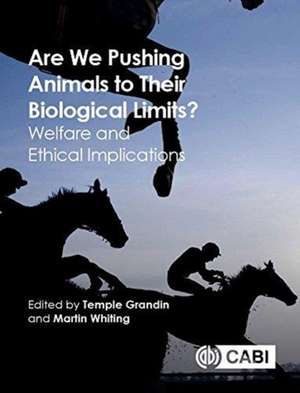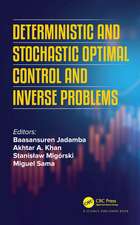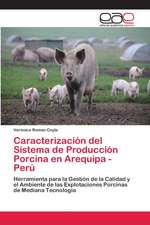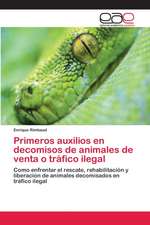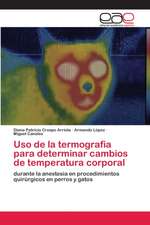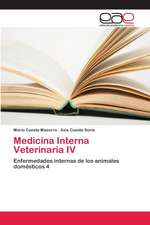Are We Pushing Animals to Their Biological Limit – Welfare and Ethical Implications
Autor Temple Grandin, Martin Whitingen Limba Engleză Paperback – 30 iul 2018
These changes may involve selective breeding for production, appearance traits, or competitive advantage in sport; transgenic animals; or the use of pharmaceuticals or hormones to enhance production or performance. Changes may impose duties to care for these animals further and more intensely, or they may make the animal more robust.
Considering a wide range of animals, including farm animals, companion animals, and laboratory animals, the book reviews the ethics and welfare issues of animals which have been adapted for sport, companions, toys, ornaments, food sources, weapons, and a whole host of other human functions. It will spark debate and is essential for all those involved in animal welfare and ethics, including veterinarians, animal scientists, animal welfare scientists, and ethologists.
Preț: 431.46 lei
Nou
82.57€ • 85.89$ • 68.17£
Carte disponibilă
Livrare economică 24 martie-07 aprilie
Livrare express 08-14 martie pentru 41.16 lei
Specificații
ISBN-10: 178639054X
Pagini: 224
Dimensiuni: 189 x 245 x 15 mm
Greutate: 0.59 kg
Editura: CABI
Descriere
This new text looks at the welfare problems and philosophical and ethical issues that are caused by changes made to an animal's telos, behavior, and physiology (both positive and negative) to adapt them for human uses.
These changes may involve selective breeding for production, appearance traits, or competitive advantage in sport; transgenic animals; or the use of pharmaceuticals or hormones to enhance production or performance. Changes may impose duties to care for these animals further and more intensely, or they may make the animal more robust.
Considering a wide range of animals, including farm animals, companion animals, and laboratory animals, the book reviews the ethics and welfare issues of animals which have been adapted for sport, companions, toys, ornaments, food sources, weapons, and a whole host of other human functions. It will spark debate and is essential for all those involved in animal welfare and ethics, including veterinarians, animal scientists, animal welfare scientists, and ethologists.
